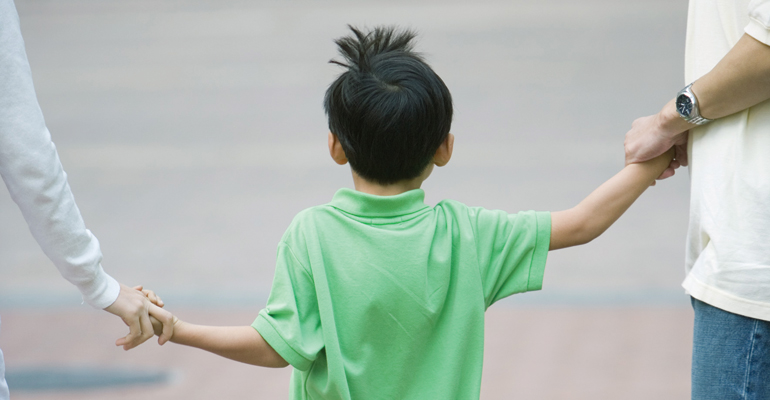What do actresses Charlize Theron and Natalie Portman, golfer Tiger Woods, and former First Lady Laura Bush have in common? Each is an only child, and all have become confident, secure individuals who use their abilities in unique ways.
Whether you’re a couple or a single mom or dad, you’ve most likely gone the extra mile to reorganize your life for parenthood. But you worry that your decision to parent only one child might not be fair, or the right thing to do. Well, you can relax.
Helping Them Grow
An only child is not necessarily a lonely (or poorly adjusted) child. An “only” has a permanent position at center stage in her parents’ eyes. It is a wonderful place to be. Research shows that only children tend to become self-reliant, and that they believe in themselves and in their families. They are often quite socially adept.
Unfortunately, only children have received a bad rap. They are often thought of as demanding, spoiled, lonely, or self-centered. Their parents have been stereotyped as being doting and intrusive. Yet such characteristics can be true of any child, or parent, whether there are siblings or not in the family.
Certainly, parenting an only child has its challenges. The tendency is to be overprotective, to try to solve a child’s problems at the expense of promoting her independence. Parents (particularly those who have waited a long time for a baby) may slip into overindulgence, forgetting that their child needs limits. But again, these problems can plague any parent, with any number of children.
Parenting an only child can also be wonderful. It can afford you the logistical and financial flexibility to offer your child a unique set of experiences, such as travel or a choice of schools. Your child may feel different from kids with siblings, but it can be a wonderful kind of different — special, loved, and cherished. To steer your “only” preschooler onto this positive path:
Strike a balance. Give your child closeness and space, opportunity and responsibility, trust and limits.
Connect him with pals. Encourage relationships at preschool, in your neighborhood, in pee-wee sports programs, with other adopted kids, and with children of different ages.
Let her fight her own battles. Let your child figure out how to share a toy with a playmate, or how to decide who gets to go first. Offer suggestions and ideas, but leave the major problem-solving to her.
Don’t take on the role of a “brother” or “sister.” You are your child’s parent, not her playmate, rival, or best friend. Spend time pursuing your own interests, leaving your child time to play and experiment on her own.
Tell her why she’s special. Let your child know that she is an only child because you want to be the best parent you can be for her.
Will an only child sometimes ask for a sibling? Or complain that life is better for the six-kid family down the street? Sure. Everyone has moments when the grass seems greener. But what’s most important in childhood is the nurturing presence of a loving parent.



